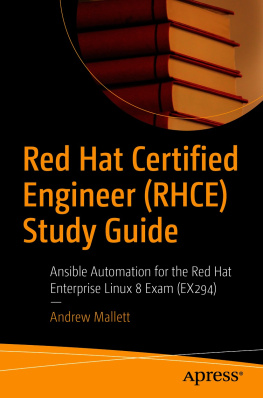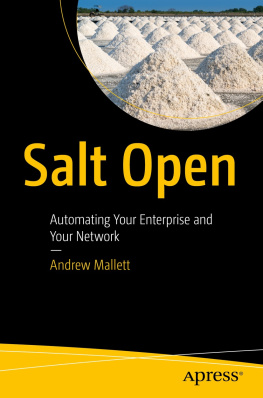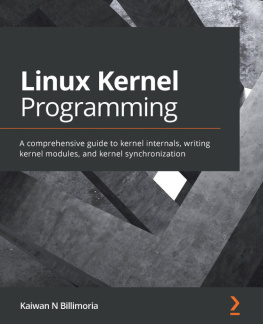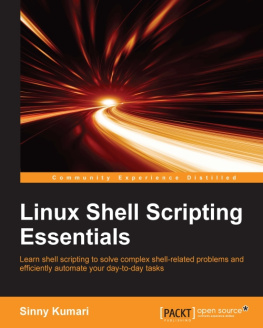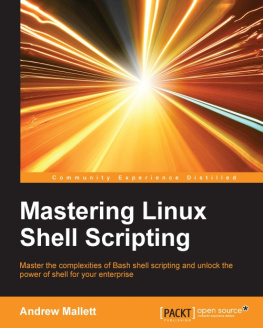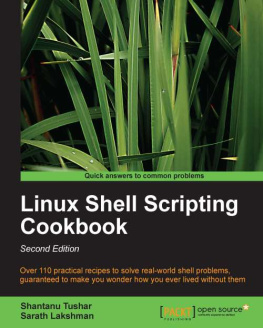Andrew Mallett - Mastering Linux Shell Scripting
Here you can read online Andrew Mallett - Mastering Linux Shell Scripting full text of the book (entire story) in english for free. Download pdf and epub, get meaning, cover and reviews about this ebook. year: 2015, publisher: Packt Publishing, genre: Computer. Description of the work, (preface) as well as reviews are available. Best literature library LitArk.com created for fans of good reading and offers a wide selection of genres:
Romance novel
Science fiction
Adventure
Detective
Science
History
Home and family
Prose
Art
Politics
Computer
Non-fiction
Religion
Business
Children
Humor
Choose a favorite category and find really read worthwhile books. Enjoy immersion in the world of imagination, feel the emotions of the characters or learn something new for yourself, make an fascinating discovery.

- Book:Mastering Linux Shell Scripting
- Author:
- Publisher:Packt Publishing
- Genre:
- Year:2015
- Rating:5 / 5
- Favourites:Add to favourites
- Your mark:
Mastering Linux Shell Scripting: summary, description and annotation
We offer to read an annotation, description, summary or preface (depends on what the author of the book "Mastering Linux Shell Scripting" wrote himself). If you haven't found the necessary information about the book — write in the comments, we will try to find it.
- Identify the high level steps such as verifying user input, using command lines and conditional statements in creating and executing simple shell scripts
- Create and edit dynamic shell scripts to manage complex and repetitive tasks
- Learn about scripting in Perl and programming in Python as a BASH scripting alternative with this practical, step-by-step guide
Shell scripting is a quick method to prototype a complex application or a problem by automating tasks when working on Linux-based systems. Using both simple one-line commands and command sequences complex problems can be solved with ease, from text processing to backing up sysadmin tools.
In this book, youll discover everything you need to know to master shell scripting and make informed choices about the elements you employ. Get to grips with the fundamentals of creating and running a script in normal mode, and in debug mode. Learn about various conditional statements code snippets, and realize the power of repetition and loops in your shell script. Implement functions and edit files using the Stream Editor, script in Perl, program in Python as well as complete coverage of other scripting languages to ensure you can choose the best tool for your project.
What you will learn- Use the type command to identify the order of command evaluation
- Create interactive scripts that prompt for user input
- Foster menu structures for operators with little command-line experience
- Develop scripts that dynamically edit web configuration files to produce a new virtual host
- Write scripts that use AWK to search and reports on log files
- Draft effective scripts using functions as building blocks, reducing maintenance and build time
- Make informed choices by comparing different script languages such as Perl and Python with BASH
Andrew Mallett is the owner of The Urban Penguin and is a comprehensive provider for professional Linux software development, training, and services. Having always been a command-line fan, he feels that so much time can be saved through knowing command-line shortcuts and scripting. TheUrbanPenguin YouTube channel, maintained by Andrew, has well over 800 videos to support this and he has authored four other Packt titles.
Table of Contents- What and Why of Scripting with Bash
- Creating Interactive Scripts
- Conditions Attached
- Creating Code Snippets
- Alternative Syntax
- Iterating with Loops
- Creating Building Blocks with Functions
- Introducing sed
- Automating Apache Virtual Hosts
- Awk Fundamentals
- Summarizing Logs with Awk
- A Better lastlog with Awk
- Using Perl as a Bash Scripting Alternative
- Using Python as a Bash Scripting Alternative
Andrew Mallett: author's other books
Who wrote Mastering Linux Shell Scripting? Find out the surname, the name of the author of the book and a list of all author's works by series.

